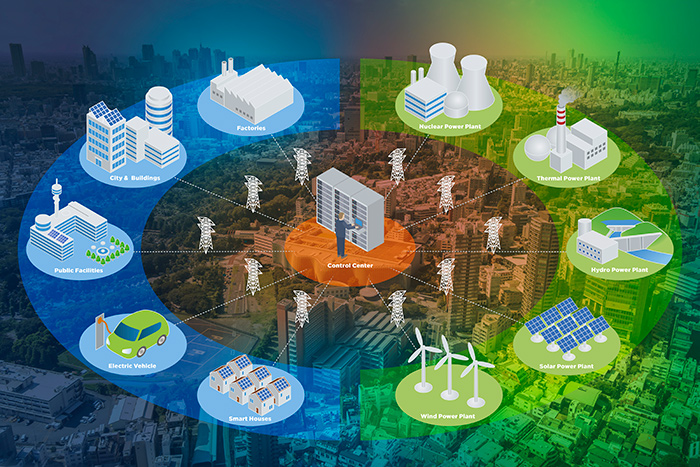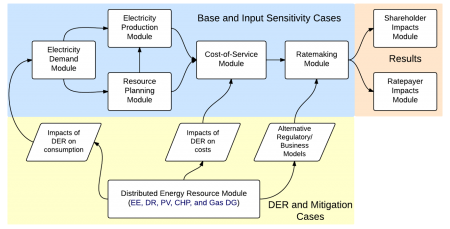Energy Markets & Policy
Energy Markets & Policy
We are focused on creating a reliable, financially healthy electric system in a world of shifting technologies and resources.
Demand Response & Smart Grid

We conduct analyses on the smart grid and what it enables, including demand response (DR) pricing and programs, technologies, data analytics, and operating practices from a market, policy, cost, benefit, and infrastructure performance perspective. By working with utilities, independent system operators (or ISOs), and regional transmission organizations (RTOs), we are able to help electric industry stakeholders better understand key elements of DR rate and program opportunities—as well as technologies enabled by advanced metering infrastructure—by conveying results of our analysis, experiences, and best practices in the following areas:
- Design
- Implementation
- Customer acceptance, retention, and response
- Consumer behavior
- Automated control technology
- Cost effectiveness
- Evaluation, measurement, and verification methods
We also provide technical support to state regulatory commissions and energy offices concerning implications of demand response resource potential, goal setting, and program design and implementation issues.
Electric System Planning & Reliability

Electric system planning requires state-of-the-art data and analysis of electricity supply, demand, and transmission issues and an understanding of the broad policy environment in which planning occurs. We conduct analyses across a wide range of electric system planning issues related to distributed energy resources, transmission expansion, renewables integration, and other topics. The Lab also maintains the Resource Planning Portal, a database of information from recent utility resource plans.
Evolving technologies addressing both supply and demand offer great promise for increasing electricity reliability, but a wealth of information and data are needed to provide improved understanding that would enable more informed decision making. To support this need, our electricity reliability research focuses on both technical and institutional issues, including technology development, metrics and trends, and economic value to electricity consumers. We also lead a National Laboratory/industry/university research and development consortium that focuses on creating the next generation of grid reliability-enhancing technologies, systems, and management approaches.
Utility Regulation & Business Models

Regulators, policymakers, and electric utilities are exploring changes to utility regulatory and business models within the context of increasing distributed energy resources, advancements in energy technologies, and new market opportunities. We conceptualize and quantify the financial impacts of distributed energy resources on electric utility shareholders and ratepayers to better understand how existing and potential business models for regulated utilities align with public policy goals. We perform quantitative and qualitative analysis, provide technical assistance to states, and explore the potential future state of electric utility regulation and business models in areas such as rate design, technology adoption, grid modernization, and value-added electricity services. This work builds on decades of research in five related areas:
- Energy efficiency
- Renewable energy
- Customer adoption of technologies
- Demand response and smart grid
- Retail rate design
Links
Energy Markets & Policy website: emp.lbl.gov
